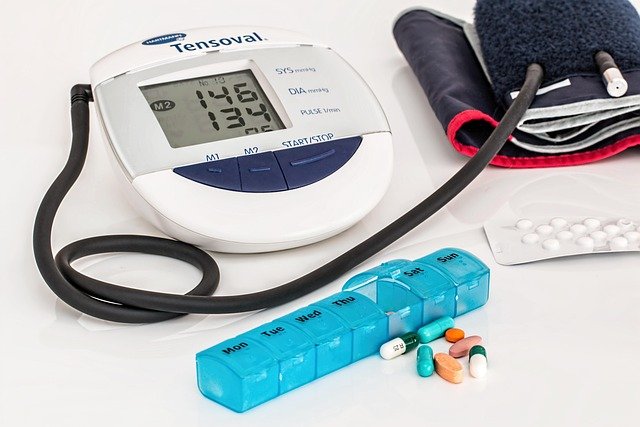Solutions for treating hypertension
Hypertension, commonly known as high blood pressure, is a prevalent health concern affecting millions of people worldwide. Left untreated, it can lead to serious complications such as heart disease, stroke, and kidney problems. Fortunately, there are numerous effective solutions for managing and treating hypertension. This article explores various approaches to control high blood pressure, from lifestyle changes to medical interventions, providing you with comprehensive insights to help maintain your cardiovascular health.

What are the first steps in treating hypertension?
The initial approach to treating hypertension often involves lifestyle modifications. These changes can significantly impact blood pressure levels and may even be sufficient to control mild cases of hypertension without medication. Some key steps include:
-
Adopting a healthy diet: The DASH (Dietary Approaches to Stop Hypertension) diet, which emphasizes fruits, vegetables, whole grains, and low-fat dairy products, has been proven effective in lowering blood pressure.
-
Reducing sodium intake: Limiting salt consumption to less than 2,300 mg per day can help lower blood pressure.
-
Regular exercise: Engaging in at least 150 minutes of moderate-intensity aerobic activity or 75 minutes of vigorous-intensity aerobic activity per week can help reduce blood pressure.
-
Maintaining a healthy weight: Losing excess weight can have a significant impact on blood pressure levels.
-
Limiting alcohol consumption: Moderate alcohol intake (up to one drink per day for women and up to two drinks per day for men) is recommended.
How can you control high blood pressure naturally?
Natural methods to control high blood pressure can be highly effective when incorporated into daily routines. These approaches include:
-
Stress management: Techniques such as meditation, deep breathing exercises, and yoga can help reduce stress and lower blood pressure.
-
Increasing potassium intake: Consuming potassium-rich foods like bananas, sweet potatoes, and spinach can help balance sodium levels in the body.
-
Incorporating herbs and supplements: Some natural remedies, such as garlic, hibiscus tea, and fish oil, may have blood pressure-lowering effects. However, it’s crucial to consult with a healthcare professional before starting any supplement regimen.
-
Getting adequate sleep: Aiming for 7-9 hours of quality sleep per night can help regulate blood pressure.
-
Reducing caffeine intake: While the effects of caffeine on blood pressure can vary, limiting consumption may be beneficial for some individuals.
What are the best methods to lower blood pressure?
The most effective methods for lowering blood pressure often combine lifestyle changes with medical interventions. Some of the best approaches include:
-
Consistent medication: If prescribed, taking blood pressure medication as directed by a healthcare provider is crucial for managing hypertension.
-
Regular monitoring: Keeping track of blood pressure readings at home and during medical check-ups helps in assessing the effectiveness of treatment.
-
Combination therapy: In some cases, a combination of different medications may be necessary to achieve optimal blood pressure control.
-
Dietary supplements: Under medical supervision, certain supplements like coenzyme Q10 or magnesium may be beneficial in supporting blood pressure management.
-
Physical activity: Engaging in regular aerobic exercise and strength training can significantly contribute to lowering blood pressure over time.
What are the new advances in treating hypertension?
Recent advancements in hypertension treatment have opened up new possibilities for managing this condition:
-
Renal denervation: This minimally invasive procedure involves using radiofrequency ablation to reduce the activity of nerves in the kidneys that contribute to high blood pressure.
-
SGLT2 inhibitors: Originally developed for diabetes treatment, these medications have shown promising results in lowering blood pressure in some patients.
-
Personalized medicine: Genetic testing and biomarker analysis are being used to tailor hypertension treatment to individual patients, improving efficacy and reducing side effects.
-
Digital health solutions: Mobile apps and wearable devices that monitor blood pressure and provide real-time feedback are becoming increasingly popular for managing hypertension.
-
Novel drug combinations: Researchers are exploring new combinations of existing medications to enhance their blood pressure-lowering effects while minimizing side effects.
What happens if you don’t stabilize your blood pressure?
Failing to stabilize high blood pressure can lead to severe health consequences:
-
Increased risk of heart disease: Uncontrolled hypertension can lead to heart attacks, heart failure, and other cardiovascular problems.
-
Stroke: High blood pressure is a major risk factor for both ischemic and hemorrhagic strokes.
-
Kidney damage: Chronic high blood pressure can cause kidney disease and kidney failure.
-
Vision problems: Hypertension can damage blood vessels in the eyes, potentially leading to vision loss.
-
Cognitive decline: Studies have shown a link between uncontrolled high blood pressure and an increased risk of dementia and cognitive impairment.
What are the most prescribed medications for hypertension?
Several classes of medications are commonly prescribed to treat hypertension. Here’s a comparison of some of the most frequently used drugs:
| Medication Class | Examples | How They Work | Common Side Effects |
|---|---|---|---|
| ACE Inhibitors | Lisinopril, Enalapril | Relax blood vessels | Dry cough, dizziness |
| ARBs | Losartan, Valsartan | Block angiotensin II | Dizziness, headache |
| Calcium Channel Blockers | Amlodipine, Diltiazem | Relax blood vessel walls | Constipation, swelling |
| Diuretics | Hydrochlorothiazide, Furosemide | Reduce fluid in blood vessels | Frequent urination, electrolyte imbalance |
| Beta-Blockers | Metoprolol, Atenolol | Reduce heart rate and output | Fatigue, cold hands and feet |
Prices, rates, or cost estimates mentioned in this article are based on the latest available information but may change over time. Independent research is advised before making financial decisions.
In conclusion, treating hypertension requires a multifaceted approach that may include lifestyle changes, natural remedies, and medical interventions. By understanding the various solutions available and working closely with healthcare providers, individuals can effectively manage their blood pressure and reduce the risk of associated health complications. Regular monitoring and adherence to treatment plans are key to long-term success in controlling hypertension.
This article is for informational purposes only and should not be considered medical advice. Please consult a qualified healthcare professional for personalized guidance and treatment.
The shared information of this article is up-to-date as of the publishing date. For more up-to-date information, please conduct your own research.




